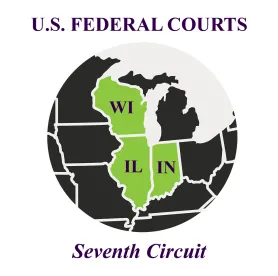The answer? Not much, in itself. If one patent is good, 132 is probably fine too. That was Judge Easterbrook’s reasoning in a recent decision addressing indirect purchasers’ antitrust challenge to AbbVie’s so-called “patent thicket” of 132 patents around the blockbuster drug Humira, arguing the sheer number of patents blocked would-be biosimilar competition. But “if AbbVie made 132 inventions,” Judge Easterbrook asked rhetorically, “why can’t it hold 132 patents?” As he noted, Thomas Edison alone held 1,093 patents. Having lots of patents shouldn’t be an antitrust issue, according to Judge Easterbrook. It’s how you use the patents.
The case is Mayor and City Council of Baltimore et al. v. AbbVie Inc. et al. Importantly, the plaintiffs did not challenge the validity of the 132 patents, nor did they allege fraud on the Patent Office. Instead, plaintiffs argued the 132 patents are too weak for AbbVie to exclude others from the Humira market, and to allow AbbVie to challenge the entrance of biosimilars in court. But, according to the Court, there really is no such thing as a “weak” patent. Patents are valid or invalid, and valid patents can be broad or narrow in scope. A narrow patent is just as valid as a broad one, according to the Court, and the First Amendment protects the right to assert presumptively valid patents in court, as long as the claim is not otherwise baseless.
Unable to challenge obtaining the 132 patents or their assertion in court, plaintiffs turned to the outcome of those assertions: settlements with potential entrants setting the entrance dates at various points in 2023, well before the last of the 132 patents expires in 2034. The Court concluded, however, that these were not reverse payment settlements. AbbVie did not make a payment to any of the defendants. Plaintiffs claimed the settlements reflected a conspiracy between AbbVie and its competitors to allocate the market to AbbVie through 2022. Judge Easterbrook addressed that claim with simple logic: “If this is a cartel…, then all settlements of patent cases violate the Sherman Act.” The settlements did what settlements are supposed to do: compromise.
This does not spell the end of patent thicket claims. A thicket of invalid or inapplicable patents might be a different story. But one thing is clear: plaintiffs will need to come up with more than just the sheer number of patents, because there really is no answer to the question, “When is one more patent too many?”





 />i
/>i

